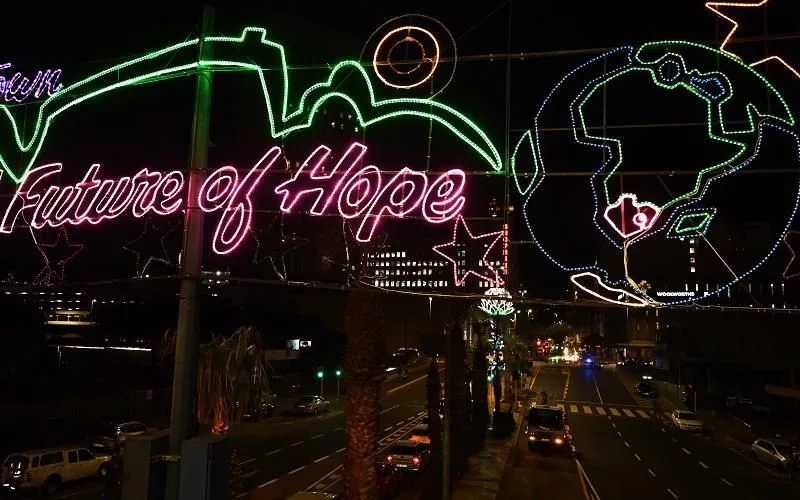South Africa’s Department of Basic Education has introduced a new approach to learner literacy that focuses on early reading benchmarks for grades 1, 2, and 3. This innovative strategy aims to improve literacy rates and refine the overall quality of primary education by identifying challenges and providing timely intervention for learners encountering difficulties. The development of these early-grade reading benchmarks represents a critical juncture in South Africa’s educational journey and is a beacon of innovation for educational systems around the world.
What is South Africa’s approach to learner literacy?
South Africa’s Department of Basic Education has introduced a new approach to learner literacy that prioritizes fundamental reading skills. This innovative strategy includes the institution of early reading benchmarks for grades 1, 2, and 3, which provide standardized measures and facilitate timely intervention for learners encountering difficulties in mastering foundational reading skills. The ultimate goal is to refine the overall quality of primary education and improve literacy rates.
Headline: Reinventing Education through Literacy
South Africa has been a key player in the global education arena, steadily making substantial progress in enhancing early grade reading. The Department of Basic Education (DBE) in the country has introduced a groundbreaking approach to learner literacy. This approach underscores the importance of fundamental reading skills and heralds a new period of educational development.
Drawing from esteemed studies such as the Progress in International Reading Literacy (PIRLS) and the Southern and Eastern Africa Consortium for Monitoring Educational Quality (SACMEQ), the DBE has shifted its focus from the end-skill of written reading comprehension to the bedrock of reading skills. This change is meant to confront the difficulties learners encounter in acquiring these crucial literacy skills, thus refining the overall quality of primary education.
The cornerstone of this innovative strategy is the institution of early reading benchmarks. These benchmarks provide the standardized measures for grades 1, 2, and 3, establishing distinct goals for learners, teachers, schools, districts, provinces, and the national department. This tactical step towards standardization facilitates the identification of challenges and timely intervention, ensuring that each learner gets a fair chance to master foundational reading skills.
Headline: Setting Reading Benchmarks: The Journey So Far
The process of setting reading benchmarks kicked off actively in 2019. The relentless endeavors of the department and stakeholders resulted in 5 pioneering reports. The initial report, a design document titled “Setting Reading Benchmarks in South Africa”, acts as the masterplan for this initiative. It provides an overview of the existing reading benchmarks, the data needed to develop them, and the language-specific gaps that need attention. The report also delves into the complexities of benchmarking methodology, leveraging data-driven methods used both within the country and globally.
The subsequent reports, focusing on a broad spectrum of language groups, reflect the broad-based and inclusive nature of this initiative. They encompass the Nguni Language group (IsiNdebele, IsiXhosa, IsiZulu, and Siswati); the Sesotho-Setswana Language group (Sepedi, Sesotho, and Setswana); Afrikaans; and English (First Additional Language).
Headline: The Future of Reading Literacy in South Africa
Continuing the pursuit of linguistic inclusivity, the Department of Basic Education, in partnership with its collaborators, plans to unveil the early-grade reading skills benchmark reports for the last two languages: Xitsonga and Tshivenḓa. This unveiling, scheduled for 16th November 2023, will be broadcast on the Department of Basic Education’s YouTube channel, further expanding the outreach of this groundbreaking initiative.
The development of these early-grade reading benchmarks represents a critical juncture in South Africa’s educational journey. It highlights the country’s pledge to render education accessible, inclusive, and effective. By identifying and tackling the challenges encountered in mastering elementary reading skills, the DBE is essentially carving a route that leads to improved literacy rates, enhanced learning experiences, and a promising future for learners.
This milestone is not just a victory for South Africa, but also a beacon of innovation for educational systems around the world. By prioritizing early-grade reading skills, South Africa illustrates that the road to literacy, and indeed to a prosperous society, is built upon the fundamentals of education.
As South Africa forges ahead on this path, the world watches this vibrant nation, observing as it converts benchmarks into broadened horizons, one word, one learner at a time. The tale of South Africa’s educational journey is still unfolding, but each chapter unveiled promises progress, a pledge to education, and a commitment to the future of its learners.
What is the goal of South Africa’s new approach to learner literacy?
The goal is to improve literacy rates and refine the overall quality of primary education by identifying challenges and providing timely intervention for learners encountering difficulties, by prioritizing fundamental reading skills.
What are the early reading benchmarks in South Africa?
The early reading benchmarks are standardized measures for grades 1, 2, and 3, that establish distinct goals for learners, teachers, schools, districts, provinces, and the national department, meant to facilitate the identification of challenges and timely intervention, ensuring that each learner gets a fair chance to master foundational reading skills.
How was the process of setting reading benchmarks initiated in South Africa?
The process of setting reading benchmarks kicked off actively in 2019, with the development of 5 pioneering reports, beginning with a design document titled “Setting Reading Benchmarks in South Africa,” which provides an overview of existing reading benchmarks, data needed to develop them, and language-specific gaps that need attention.
Which language groups do the reading benchmarks in South Africa encompass?
The language groups for the reading benchmarks in South Africa include the Nguni Language group (IsiNdebele, IsiXhosa, IsiZulu, and Siswati), the Sesotho-Setswana Language group (Sepedi, Sesotho, and Setswana), Afrikaans, and English (First Additional Language).
What is the future of reading literacy in South Africa?
The Department of Basic Education, in partnership with its collaborators, plans to unveil the early-grade reading skills benchmark reports for the last two languages: Xitsonga and Tshivenḓa. This unveiling, scheduled for 16th November 2023, will be broadcast on the Department of Basic Education’s YouTube channel, further expanding the outreach of this groundbreaking initiative.
Why is South Africa’s approach to learner literacy a beacon of innovation for educational systems around the world?
South Africa’s approach to learner literacy prioritizes early-grade reading skills, recognizing the importance of fundamental reading skills. By identifying and tackling the challenges encountered in mastering elementary reading skills, the DBE is paving the way for improved literacy rates, enhanced learning experiences, and a promising future for learners, making it a beacon of innovation for educational systems around the world.








